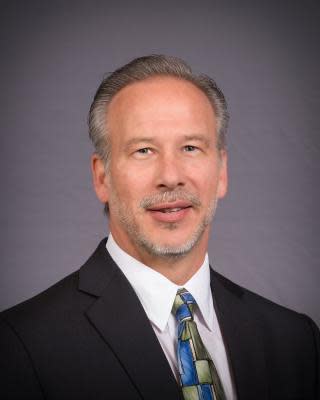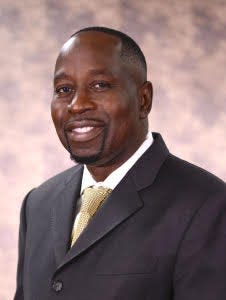Monroe County to receive $5.5 million from opioid settlement
Monroe County will receive $5.5 million over 18 years as part of the national opioids settlement.
“The opioid epidemic was born, in part, out of a concert of action by many large corporations who reaped incredible profits as a result,” Michigan Attorney General Dana Nessel said in June. “It is rewarding to both hold them accountable and secure much-needed funding for the continued suffering of those with opioid use disorder.”

“We received the first payment on Feb. 1. Payments under the settlement with the national distributors will continue for 18 years,” Michael Bosanac, Monroe County administrator, said.
All Michigan counties and some cities and townships, as well as locations across the country, are receiving funding. Monroe County's plans for the money include an intensive outpatient substance abuse program, support programs and education. Two education sessions for the public have been set for Oct. 3 and 4 at Monroe County Community College. Both are free.
Bosanac said trial attorney E. Powell Miller from Miller Law PC of Rochester was the county’s legal counsel for the opioid lawsuit and was instrumental in securing the funding.
“He led, not only our efforts, but cleared the way for all Michigan communities to be able to recover funds. Beyond recovering funds, it was the goal to change the practices to help prevent further pain in our communities by the over-prescriptions that have harmed so many, not just in Michigan, but across our country. Powell and his team are awesome. One of the best decisions in my nearly 40 years of public service was sourcing Miller Law to lead our litigation," Bosanac said.
The county administrator said Monroe County's case was the "bellwether case that tested the legal theories of liability. Ultimately the defendants could not defeat our initial filing (1,200 pages), and this led to settlement negotiations. Monroe County received additional settlement funds due to its leadership on the case and ultimately helped with the state of Michigan distribution of funds to the state (50%) and to all other local units of government (50%).”
Local plans for the funds were updated for 2023-24 and were presented Sept. 19 to the Monroe County Board of Commissioners, which approved the plan.
“We developed an annual initial plan. We continue to develop it, evaluate outcomes and plan future programs and services based on outcomes and ongoing needs. The initial plan carries out some of the key initiatives developed in the 2020 Opioid Strategic plan that addressed the community challenges. The plan is also aligned with the current Opioid Task Force led by Jason Berry, site administrator for Salvation Army Harbor Light,” Bosanac said.
The plans include creating an opioid task force, an intensive outpatient substance abuse program, community and first responder training, support programs, workshops, naloxone distribution and the dashboard www.knowmoremonroe.com, which will provide an updated list of numbers, including local overdose deaths. The publication “Substance Use Disorder Resource Guide” will be released soon.
The projects involve several community service providers, including Recovery Advocacy Warriors, Salvation Army Harbor Light, Monroe Community Mental Health Authority, Monroe County Health Department, St. Joseph Center of Hope, Catholic Charities of Southeast Michigan, Monroe County Substance Abuse Coalition, Recovery Mobile Clinic and local schools’ Student Prevention Leadership teams.
The first two initiations, 90-minute drug overdose crisis seminars, will take place Oct. 3 and 4 at the Meyer Theater, Monroe County Community College, 1555 S. Raisinville Road.
"The goals are to distribute information to our community to educate, provide awareness and offer information available on treatment programs and services to both the general community and also to emergency first responders," Bosanac said.
The community event begins at 9 a.m. Oct. 3 with networking at 8 a.m. It will be repeated at 6:30 p.m. Oct. 4 with networking at 5:30 p.m. This session is geared to families, caregivers, faith-based leaders and business owners.
Offered will be an overview of the crisis and ways to respond. Topics will include definitions of substance use disorder and opioids, signs and symptoms of drug abuse, local resources, responding to those in need, prevention and education, local support, and a question-and-answer session.
The first responder training will begin at 6:30 p.m. Oct. 3 with networking at 5:30 p.m. It will be repeated at 9 a.m. Oct. 4 with networking at 8 a.m. This program is geared to law enforcement, firefighters, paramedics, 911 dispatchers and emergency medicine providers. The public also may attend.
Participants will learn skills to be effective in addressing drug overdoes. Topics will include an overview of the crisis and substance use disorder, signs and symptoms, interacting with people with addiction, safe and appropriate response procedures, local resources and support, case studies, legal and ethical consideration, and a question-and-answer session.
"Prior to the training program, we will have service providers set up in the atrium area to provide information on programs and services available in the community," Bosanac said. "So, even if someone is not able to attend the 90-minute training session, they can learn about what the Monroe community has to offer in terms of treatment, education, prevention measures and how these providers coordinate and work to ensure people in need can get the help needed. The training will advance understanding of the challenges and offer tools, techniques and insight to help recognize and respond."


The presenters at both events will Stephanie Huhn and Colin King.
Huhn is a licensed psychotherapist in Michigan and a public speaker who has been in practice for more than 13 years. She’s also a certified forensic trauma clinician. She speaks about mental health and wellness topics internationally.
King is a clinical psychologist with master’s and doctorate degrees in counseling and psychology. He has been an adjunct faculty member at Wayne State University, Eastern Michigan University, University of Detroit and Ashland University. He speaks around the world.
Subscribe Now: For all the latest local developments, breaking news and high school sports content.
More programs and services related to the funding will be announced.
"Our goal is to continue building up resources, more expertise and helping our community partners deliver high-quality services/treatment and educational programming to Monroe County. Our plans and model have been copied across the state, and we have great teamwork focused on serving those in need," Bosanac said.
This article originally appeared on The Monroe News: Monroe County to receive $5.5 million from opioid settlement

